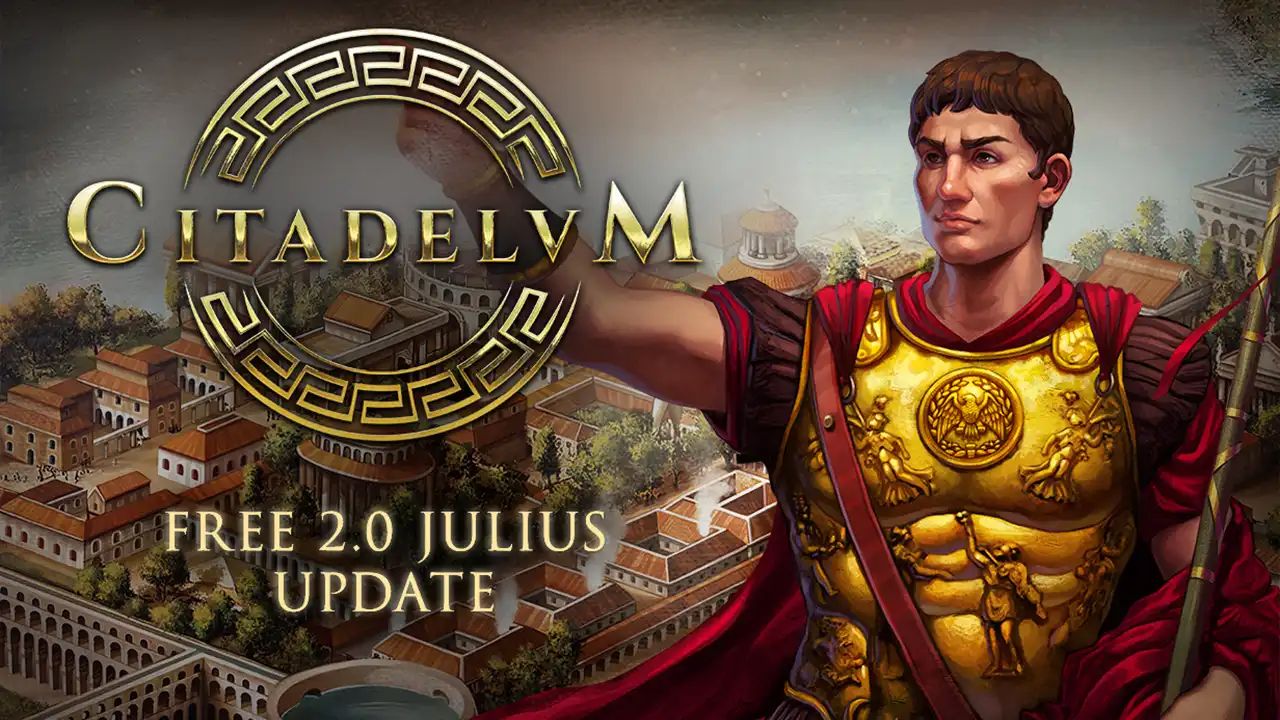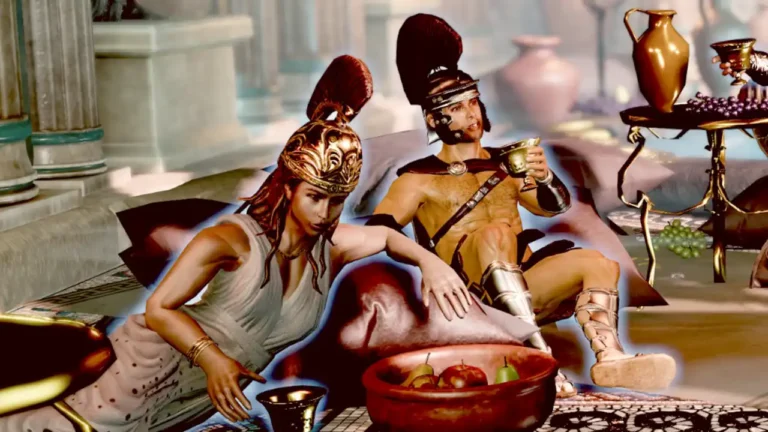Citadelum marches back onto the screen with Roman lockstep - bringing not only a better trading system, but also the new clay bricks, salt and world wonders. The city-building strategy game from the publisher Abylight Studios sets off on a triumphal march through ancient simulations in the major update 2.0. With deepened production chains, a justice system and new options for worshipping the gods, no temple stone is left unturned. And should a citizen of your city die, he will now remain with you as a green-smelling corpse. In this ancient life simulation, players can not only expand their cities, but also shape them socially, influence gods, wage wars or start out as bread suppliers.
Hygiene, murder and crematorium romance
In Citadelum death now finally has a lasting effect. Instead of simply disappearing from the cityscape, deceased citizens are transformed into putrid Splash of color on roads, Beds or as corpses in thermal baths. These morbid piles of pixels not only lower the city's hygiene levels, but also have a direct impact on the health of the rest of the population. If you don't take care of the decay, you risk an epidemic - or at least coughing patricians who complain bitterly about the stench. A hygienic revolution is therefore urgently needed.

Fortunately, the new crematorium provides a remedy. With its smell of "crispy human", it promptly becomes the new hotspot of the residential area - whether this increases the property value remains questionable. What is important is that there is room for four workers who tirelessly patrol the streets and remove corpses. In order for the crematorium to fulfill its function, however, it needs a new building material: clay bricks. These are made from clay, which is quarried in specially designated areas. The Production chain not only becomes more complex, but is also grounded in everyday Roman logic - first dig, then bake, then eliminate.
Of cheese, camon bears and complicated chains
Agriculture in Citadelum was already broadly based, but with the 2.0 update it becomes a delicacy. New additions include olive groves, oil mills, bee farms and the cheese dairy - the latter produces "Kamonbeär", the favorite snack of the Roman upper class, in proper style. Bread is now baked not only from wheat, but also from salt. Butchers also need salt to prepare cured meat. And, of course, honey was also needed to make the Patrician to keep them happy.

The new production chains are much more complex: salt has to be extracted close to deposits and then finds its way via the Warehouse to various finishing stations. Clay is just as important - this is also processed in several production steps, for example in the pottery to make ceramics or in brick presses to make building material. This ramification makes the supply chain more exciting, but also more challenging. Suddenly, every resource becomes valuable and every transportation route relevant. Those who manage to keep the logistics under control are rewarded with a rich variety and satisfied citizens. A Roman challenge to suit the taste of strategists.
Judgments with an aftertaste: the Palace of Justice in Citadelum
Not everything can be patched up with cheese and bricks. Sometimes justice is needed - or at least what players think it is. With the Palace of Justice, a new feature is moving into Citadelum the legal decision-making game. Time and again, incidents occur that require judicial action. This is not just about complying with the law, but also about political balancing acts. Every decision has consequences: Sometimes a social group leaves the city, sometimes insurgents burn down entire districts.

The new Legal system brings a wonderfully cynical note to the game: Those who pass harsh but lucrative sentences can make a tidy sum for the state coffers - for example through high fines. But playing with justice is dangerous. If the administration of justice is too one-sided, it attracts the wrath of the population, which can lead to unrest or an exodus of patricians. The system thus not only brings additional depth, but also a clever tension between moral and economic decisions. Justice may be blind, but in Citadelum it calculates with compound interest.
Gods, whims and automated offerings
The sky above Citadelum is not just a backdrop - it is a decisive factor. The gods in the game react sensitively to disrespect and reward worship. Their influence ranges from divine gifts to divine destructive rage. With the new "Regia" building, players can now automate festivals to counteract the divine whims. However, the Regia has a logic of its own: it does not always choose the god with the greatest rage, but acts more like an administrative official with a penchant for surprise.
In order for the Regia to function, it needs sufficient supplies. Only then can a feast for the gods be celebrated. This makes it not only the religious center, but also the logistical hub. The festival planning needs to be well coordinated - not least because the plebeians would prefer to live near this permanent divine party. This divine level lends the game additional narrative depth. Gods come from heaven, help or punish, send visions or curses and thus change not only the cityscape, but also the stories that emerge within the simulation. In one run Mars rages, in the next Ceres helps - divine coincidence with a system.
Bread, games and a bit of pixel politics in Citadelum
Citadelum version 2.0 delivers a Roman update full of ambition. The developer Abylight Studios Barcelona has not only made cosmetic improvements, but also added real depth to the game. The new production chains require more complex management, the justice system brings moral gray areas, and the divine level provides mythical thrills. In addition, battles can now also be simulated - for those who prefer to concentrate on building their city. The technology levels in the forum enable further upgrades for warehouses or production facilities, which opens up new possibilities for strategic players. And in between there are side quests, the completion of which also brings some small advantages.

The game has also been technically upgraded: shorter loading times, new languages and optimized saving options make the experience more rounded. Only the decoration is still lacking - the Mosaic of design options is currently more of a tile break. If you want a detailed design for your metropolis, you are still a little hungry. But what is not yet can still be patched. After all, Rome wasn't built in one update day.
In short: Hail, construction site!
Citadelum turns Roman antiquity into an exciting build-up strategy adventure with black humor, economic depth and divine drama. Version 2.0 brings a breath of fresh air - sometimes in the form of the smell of corpses. Once again, all roads lead to Rome. But some stink more than others.
